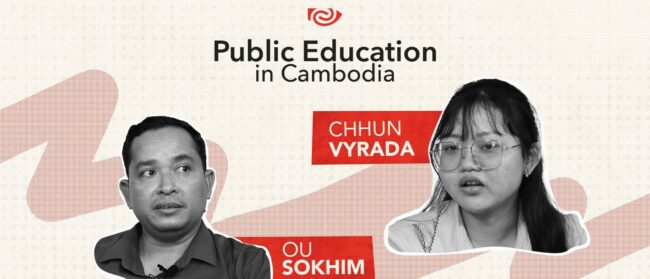 Myanmar has made steps towards reforming its education system, but there’s a long road to travel before the country can catch up with the rest of Asia, particularly for women and girls.
Myanmar has made steps towards reforming its education system, but there’s a long road to travel before the country can catch up with the rest of Asia, particularly for women and girls.
By Pauline Chiou
Knowledge is power. And Myanmar’s women deserve to have more of both.
Most international sanctions on Myanmar have been lifted and the country is rapidly changing. However, the education system is reforming in fits and starts. For more than two decades, the former military junta suppressed schools and universities fearing more student-led demonstrations. As a result, a “lost generation” of people (ages 20-40) now makes up a large part of an economy that’s playing catch up to the rest of Asia. Furthermore, their children are going through a school system that is filled with gaps.
I had the privilege of moderating an education panel in Yangon last month at the Women’s Forum of Myanmar. Member of Parliament Su Su Lwin was on the panel. She says Myanmar’s 36,000 schools are not making the grade. According to Lwin, many of the schools are using outdated textbooks and teachers who emphasize rote learning.
“In terms of quality, we have much to go,” says Su Su Lwin. “During the past 25 or 30 years, there’s been a decline in quality. It has very much to do with relevance [of the teaching material].”
Kamal Ahmad is the founder of the Asian University for Women based in Bangladesh which focuses on leadership training and higher education for women. More than 500 women from Southeast Asia are enrolled including fifteen from Myanmar. Ahmad wants to see a solid curriculum in Myanmar that goes well beyond primary school.
“I think what has held up progress in some respect is a stubborn view in many parts of the world, that if you are a poor country, focus just on primary education. Let the developed world do the higher education. That is a very dangerous kind of pathway of thinking about education,” Ahmad argues. “You have to have a decent secondary education. You have to have a decent higher education because where will the teachers come from? Who will develop the curriculum? Who will provide leadership?”
There is also the issue of gender discrimination in Myanmar schools. There are certain fields where female students must score higher than male students. One young woman told me, “To go to the Institute of Medicine, girls have to score higher than boys. A girl needs to reach 420 out of 500 points. Boys can get accepted if they have only 390 to 400 points.”
A middle-aged woman named Htay recounted her career path. In 1981, she applied to university to study metallurgy engineering. She said, “My application was not accepted because the metallurgy engineering program prioritized boys. But I scored higher marks than many boys who were accepted. Then I asked for a major in geology. I was told the geology major does not accept girls every year. That is my story.” Today she works as an English translator.
The reforms in Myanmar provide a good first step, but successful education reform will need streamlining, commitment and funding. As Aung Sang Suu Kyi said in the forum’s keynote speech, “Opportunities are not enough. We must make use of them.”
***
Pauline Chiou is a CNN anchor/correspondent and the co-host of ‘World Business Today’ based in Hong Kong. Follow Pauline on Twitter @PaulineCNN. For more business coverage, go to www.cnn.com/business.
Keep reading:
“A quiet struggle” – Myanmar’s LGBT community suffers abuse, stigma and the legacy of colonial and dictatorial rule. Slowly, however, it is mobilising and finding a voice
“Hip to be Squar” – The launch of Myanmar’s first local-language social networking site is a sign of the digital times gripping the nation
“War and Peace” – Aung Min succeeded in the landmark task of securing an accord with the majority of Myanmar’s ethnic rebel groups, but a lasting truce remains elusive
“Facing a grey future” – Myanmar needs to seize its momentum and implement resolute economic reforms if it hopes to support an ageing population
“A design for life” – With plenty of green space and a wealth of built heritage, Yangon has the potential to become a model of sustainable development
 Myanmar has made steps towards reforming its education system, but there’s a long road to travel before the country can catch up with the rest of Asia, particularly for women and girls.
Myanmar has made steps towards reforming its education system, but there’s a long road to travel before the country can catch up with the rest of Asia, particularly for women and girls.
